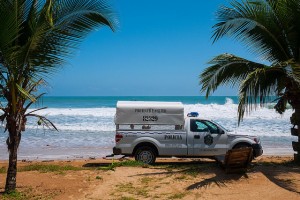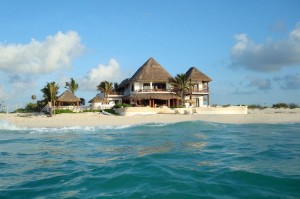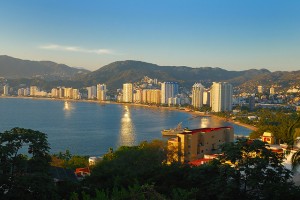Becoming an expat, living abroad and immersing yourself in a new way of life can be an exciting proposition. However, there can be some unpleasant shocks to being new in a foreign country, namely unexpected or higher costs for things that you hadn’t expected or budgeted for.
These increased expenses for the unwary or uninformed expat can have not only financial but also a profound emotional impact. Understanding the development cycle and educating oneself on how the locals spend and shop, can reduce this cultural sticker shock and ease your transition into the tropical lifestyle you had dreamed of.

Jasperdo
What the New Person Tax Is
The new person tax can be thought of as having two parts. The first part consists of those expenses that are necessary to establishing yourself as an expat in your new country. The second part is those prices that expats pay for goods and services that are higher than the local population.
While neither part is a “tax” in the true sense of the word, the unwelcome and unexpected costs of your new lifestyle can feel just as burdensome as a levy from a taxing authority. Here are some examples that illustrate what a “new person tax” is:
Moving Your Personal Property to Your Tropical Escape
Perhaps one of the biggest shocks many expats receive is when they discover just how much it will cost to bring their furniture, clothes, electronics, etc. into their new country. Each country has different rules regarding the dollar amount that can be imported by foreigners without having to pay taxes, or customs duties.
This is particularly important if you are considering bringing a vehicle into the country; registration, insurance, and licensing fees all run up the dollar amount that having your own personal transportation could cost.
An even bigger surprise comes when trying to find companies that will ship to your destination and how much it will cost. Factor in the time it may take to actually receive your belongings (and the costs that you may incur if you need to buy essentials to use while waiting) and the cost may stagger those who weren’t expecting it.
Real Estate Can Mean Real Costs
While many countries have very favorable laws governing land ownership by foreigners, the expenses involved in a purchase can go well beyond the purchase price. Retaining an attorney, paying for title searches, having documents translated, registration at the correct authority, transfer taxes (if applicable), and, of course, commissions, should all be considered as related costs.
Trying to actually learn what the purchase price of a parcel of land or a home is can be another money trap. Latin American countries do not have an MLS system and, as a result, properties can be advertised by multiple agents, at different prices, at the same time. It is not uncommon to find the higher prices listed on “gringo friendly” websites than on those favored by local residents.
Paying for utilities can also have unexpected financial consequences. Utility companies in paradise will often charge for service calls even if it turns out that the service can’t be installed or repaired. Simply put, expecting the same type of relationships with providers of electricity, water, cable, and internet that you would find in the U.S. (and at the same prices) is just not realistic.
Shopping Can Be a Challenge
Even the simple tasks of food or clothes shopping may eat unexpected holes in the budget. North Americans are often perceived as having endlessly deep pockets, so it is not uncommon for expats to be charged higher prices than the locals pay; this is sometimes referred to as the “gringo price.” This is especially true in the smaller markets where no prices are posted.
Some of the larger stores do carry items that cater to the expat community who want to purchase the same kinds of things they would find in their home country. The trade-off: prices for those imported items are often double or even triple what they would cost in the States.
For example, a simple 8 oz. bag of potato chips that might only cost $0.99 in the U.S., can cost $3.79 in your tropical destination. Trying to live like a gringo, while trying to be an expat, can be an expensive proposition.
For larger bulk items, such as building materials, there could be an even greater element of surprise. Barter is not uncommon throughout Central America and, for locals, this can also be a medium of exchange (i.e., lumber in exchange for working on the land, etc.).
Unfortunately, this kind of arrangement is usually not discovered by expats and, as a result, having to pay for supplies can drive up construction costs. Also, once supplies are purchased, it is often up to the buyer to figure out how to get them to the desired location.
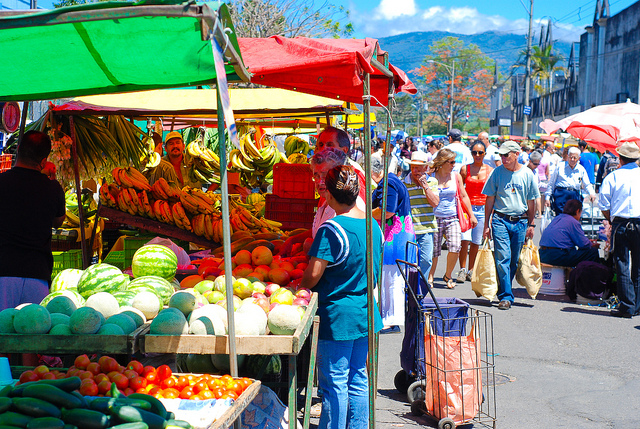
Everjean
How to Give Yourself a New Person Tax Break
The transition to expat status can seem almost overwhelming at times. However, there are some simple steps you can take to minimize the financial impact of being the “new person.”
Do Your Homework
There are many online resources that expats can use to learn about the real costs of moving to a desired destination. Make a list of questions that you would like answers to (remember, there are no stupid questions) and research the answers. The truth is out there, you can find it.
What Kind of Lifestyle Will You Have
It’s important to decide what kind of expat life you want to lead in your Latin American home. Are you planning on obtaining residency? Will you become a “permanent tourist” (travelling back and forth to the U.S. or elsewhere)? Rent, buy, or build? Each choice carries its own unique set of potential expenses; deciding how you are going to live makes it much easier to understand the potential budget concerns up front.
Connect with Others
With the number of expats growing by leaps and bounds, finding those who have successfully (or not) made the journey may be simply a matter of using one of the many social networking sites. Just reading about others’ experiences can provide valuable information that can translate into actual savings when you are in country.
Become a Part of Your Community
Perhaps the best way of avoiding the “gringo price” trap is to build relationships with the locals. Having friendly associations can provide you with help in finding the best places to shop, learning a new language (if you don’t speak Spanish), and generally providing a way to truly immerse yourself as part of the country, instead of being an outsider.
A Final Hint
There is always an element of the unknown in any new adventure. The old saying is true: You can’t guard against the arbitrary.
Becoming an expat may be one of the most profound experiences one can undertake in a lifetime. Embrace it, keep your expectations realistic, and remember that learning is growth. Visit those places that call to you and see if the time is right to take that first big leap of faith.
The recent attention Panama has been receiving as a great place for retirees points out why a Panama retirement is a valuable choice. For many baby boomers considering a move offshore, this tropical destination provides many options that other Latin American countries don’t offer.
With its close ties to the U.S., continued infrastructure improvements, and a vibrant historical and cultural atmosphere, Panama should be on everyone’s “short list” for retirement meccas. AARP has named Boquete, Panama as one of the top places to retire abroad. The growth in the real estate market in Boquete highlights the Panamanian potential as a long-term retirement or investment option.

Judy Chartrand
Why Is a Panama Retirement Such a Valuable Choice? The Reasons Are Below:
In the last several years, Panama has made a concerted effort to attract expats, especially retirees, to become part of Panamanian life. The results of this effort has definitely increased the extrinsic and intrinsic values of this Central American country as a retirement choice. Below are some of those highlights:
Panama Is the Complete Retirement Package
- Climate: Panama has a range of climate choices that can meet any retiree’s requirements. From the cool mountain temperatures of areas like Boquete and Santa Fe, to the tropical beachfronts of Panama City, to the island breezes of the Las Perlas and San Blas Island groups, finding that perfect blend of weather and temperature is far easier than in many other tropical locations.
- Culture: It is very easy to become immersed in Panamanian culture. The rustic towns, like David and Chitre, offer a welcome change from the larger urban setting of Panama City. The Azuero Peninsula, with towns like Pedasi and Las Tablas are widely recognized as Panama’s cultural and historical heartland that retirees are beginning to discover for themselves.
- Getting There Is Easy: Panama is easily accessible from the U.S. and Europe. With direct daily flights from fifteen U.S. cities, on international carriers such as United, Delta, American, and Copa, being able to fly to your tropical getaway is both affordable and easy to arrange. Domestically, Air Panama is expanding its service to new locations, such as Pedasi.
- Becoming a Resident Is Easier Than Ever: The Specific Countries Program that has been in place since 2012 has made it possible for holders of U.S., Canadian, and European passports to become residents within six to eight months. The process itself is relatively uncomplicated. Learning about the residency process and the straightforward requirements is just another part of understanding why Panama is a great choice.
- The Currency Is Familiar: Although Panama’s official currency is the Balboa, the country has been using the U.S. dollar as legal tender for all transactions for quite some time. Not having to negotiate currency exchanges or understanding how to convert the price of something into U.S. values not only is more convenient but also makes price comparisons easier as well.
- It Pays to Be a Retiree in Panama: Once you have qualified for the pensionado (retirement) visa, there are a lot of money-saving discounts that you can qualify for. Here is a partial list that clearly demonstrates how affordable retiring in Panama can be.

Magda Wojtyra
| Discounts |
| 50% discount on entertainment anywhere in Panama (movies, theatres, concerts)30% discount on bus, boat and train fares25% discount on airline tickets50% discount on hotels from Monday to Thursday25% discount on hotels from Friday to Sunday25% discount in sit-down restaurants
15% discount in fast food restaurants 15% discount on hospital bills (if no insurance applies) 10% discount on prescription medications 20% discount on medical consultations 15% discount on dental and eye exams 20% discount on professional and technical services 50% discount on closing costs for home loans |
Retirees are also entitled to a one-time tax exemption, up to $10,000, to import household goods. Additionally, there is a tax emption every two years for the purchase or importation of a personal vehicle.

Nelson de Witt
Panama Is a Great Place for Retirees to Invest and Prosper
Panama stands out as one of the very few Latin American locations where retirees can anticipate a strong return on their initial investment. Between a growing real estate market, favorable pricing, and active government support to make Panama an attractive place for expat dollars, the long-term potential for the growth of your retirement nest egg is strong.
- Increasing Housing Prices – Like most of the world, Panama’s real estate market suffered during the financial downturn of 2008. In the last few years the market has rebounded, making investing in property a solid proposition for financial growth and a good return on your initial purchase price.
While there are some areas where larger foreign developers have purchased large tracts of property based on the speculation of what they might be worth when fully developed, purchasing your retirement retreat can still be done for a reasonable price. The continued rise in property values will, in turn, add to the return you can expect when you decide to sell.
- Reinventing Yourself – Unlike its neighbors, Panama actively supports skilled professionals and investors who want to work and contribute to the Panamanian economical revival. Under the Specific Countries Program (mentioned above), obtaining a work permit is straightforward. The program is somewhat controversial, however, and checking with a skilled immigration attorney is an important step in the process.
- Favorable Real Estate Tax Structure – Property taxes in Panama are far less than those you would expect in the US. The tax basis is the value of the land and declared value of any improvements. The maximum tax rate is only 2.10%. Importantly, the government offers a generous property tax exemption for residential properties.
For properties whose value is $100,000 or less, taxes are exempt for 15 years; between $100,000 and $250,000, ten years and, for values above $250,000, five years. For most retirees, the prospect of not having to pay any property taxes for an extended period, translates into a tangible uptick on the money they will have to spend elsewhere.
Panama’s Value Combines the Tangible and Intangible Elements for Retirees
Taking the time to research the Panamanian potential should be a part of your retirement planning. As you look into what the country offers, visit and explore the various regions, and experience Panamanian life, you will truly understand the value that a Panama retirement can hold for you.
Traveling to, or living in, a foreign country can be an exciting and life-changing experience. However, theft can, and sometimes does, happen and that can turn that idyllic scenario into a nightmare. Learning some easy steps for keeping safe can save both time and money later on.
Understanding the reasons why theft is so commonplace, and how to guard against it, are important tools for anyone looking for a tropical escape to move to. By taking some simple precautions, you can protect your belongings and your peace of mind throughout Latin America and elsewhere.
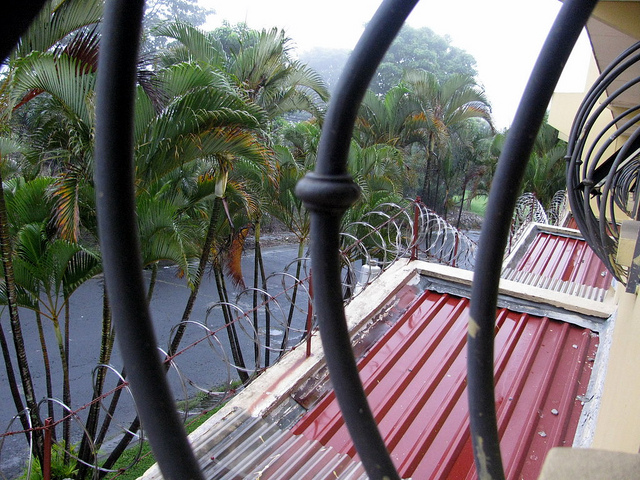
Alex Lane
Why Does Theft Happen to Expats?
First and foremost, the average income in most (if not all) Latin American countries is far less than the U.S., Canada, or Europe. This is not to say that these countries are poorer; a real argument can be made that for all that may be lacking in material or monetary measures, it is more than made up for in terms of a more relaxed and healthier lifestyle and outlook on life in general.
Nonetheless, when tourists, expats, and even seasoned investors visit these areas, they often become the focus of those individuals looking for expensive items (cameras, laptops, cell phones, etc.) that would not be otherwise obtainable. This is not much different than could be encountered in any tourist area in the world; just because the weather is tropical, and the pace is relaxed, doesn’t mean theft can’t or won’t happen.
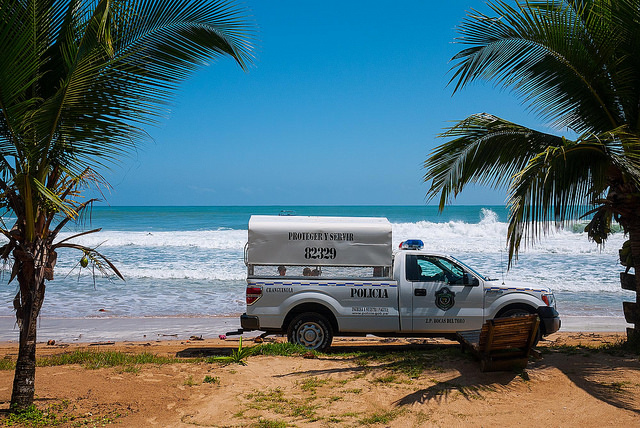
Magda Wojtyra
Enforcement Is Easier Said Than Done
A second major factor contributing to foreigners becoming the victims of theft is the simple fact that local police authorities are usually undermanned and often view property theft as a less serious matter. Even in those areas where there is an active police presence, such as beaches or resorts, the incidence of theft of personal belongings is still high.
Reporting a theft can be a challenge in and of itself. If you are not conversant in the local language, usually Spanish, trying to make a complaint can be a frustrating experience. Even calling 911 (or the local equivalent) may not generate a response for hours; again, this lack of a rapid response is not dissimilar to that in many U.S. cities.
Even if the police catch the thief, or thieves, the chance of getting your property back is slim to none. In many cases, when something is stolen, it is a crime of opportunity. If the thief can’t use it or sell it, the item(s) will be tossed by the side of the road or in the garbage. It also isn’t uncommon that these “banditos” are known to local authorities and could be let off with a stern warning not to do it again; suffice it to say, that’s a warning that falls on deaf ears.
Added together, these factors make it understandable why the potential for theft from tourists and expats is considerable. However, the existence of the problem does not make it an inevitable occurrence.
What Are Target Items?
Obviously, cash and credit cards are number one on thieves’ lists. Right behind those items are passports; there is a growing market for foreign passports, particularly U.S. and European, that has made these identification documents very desirable targets.
Electronics of all kinds, computers, laptops, tablets, digital cameras, cell phones, etc., have long been high on the list of items stolen. Even older models may be viewed as “new” in countries where the ability to buy such products is limited.
Finally, any other personal valuables such as jewelry, clothing, or even shoes can be targets. If it can be used or resold, it might be worth taking.
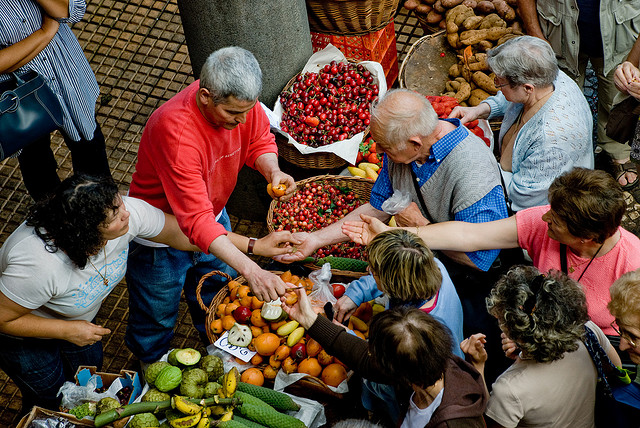
bartb_pt
Preventive Measures – Reduce Your Risk
There are a number of common-sense approaches to keeping safe throughout Central America. Some areas are safer than others, of course, and the same can also be said of most populated areas in the U.S. and Europe. But in a real sense, location does matter here – more than in other parts of the world.
Here are some tips to help you lower your “theft profile:”
Know Where You Are.
Learning what areas of the city, town, or village you’re staying in are the “rough” parts is often as easy as speaking to other expats, talking to local residents, or checking social media. Avoiding these locations or limiting the time you spend in them (if you have to/want to be there) is a major way to reduce your potential for being robbed.
Avoid Cash and Flash.
Leaving expensive items such as cameras, tablets, and cell phones out in the open is often an invitation to having them stolen. Too many times people will bring their electronics to areas such as the beach, leave them on their towels or beach chairs unattended and, upon returning from a swim in the ocean, discover that those items are gone. It may seem obvious not to do that kind of thing, but it does happen far more often than you might expect.
Similarly, flashing a large amount of money in places like clubs or bars is not a wise idea (in any location in the world). Just because you may not be paying attention doesn’t mean that others aren’t. A related matter would be leaving purses or wallets exposed without someone watching them; again, this happens far more than you might imagine.
Locks Are Good Things – Use Them.
For many expats, living in paradise means being more relaxed, not having to worry about security, and enjoying the tropical experience. This is certainly a romantic vision and one that, unfortunately, ignores some basic realities.
Always keep your car locked when you park it, especially in high tourist areas. Even with police being present, an unlocked car or truck is an open invitation. When there are crowds clamoring to see the sights, it is unrealistic to expect that security or police can (or will) watch everyone. On a related note, don’t leave valuables or luggage in your vehicle unattended; again, this is like putting a “welcome” sign to thieves looking for an easy score.
Even though it may feel wrong, use the locks on your residence. Expat residential areas are often scouted for those places where a simple, unlocked door can provide a gateway for the treasures within.
Keeping Safe Makes Life Easier
Being an expat, immersing yourself in new cultures, and enjoying the potential that life in the tropics holds can be the most rewarding experience one can have. Using common sense when it comes to you and your belongings can make your expat life easier and more enjoyable. The world is out there; travel safe and enjoy the journey.
A recent article in The Guardian noted: “Global debt has grown by $57 trillion to reach $199 trillion in the seven years following the financial crisis – a 40.1% rise, according to a new report.”
What this translates into is that global debt is now 286% of the world’s Gross Domestic Product, or GDP. GDP is the monetary value of a country’s (or in this case the world’s) finished goods and services that have been produced in a given time.
While these figures reflect the economic situation of governments, individuals too can be expected to feel the crushing impact of what is, obviously, an unsustainable debt load.
Under these circumstances, becoming an expat and owning property abroad is more than just a sound investment hedge against this economic shadow; it is a way of rediscovering what truly matters and having the opportunity to pursue those ideals.

epSos .de
Why Global Debt Should Matter to You
Global debt has many far-reaching implications that transcend the international geo-political scene. Though usually referred to by the media (both mainstream and alternative) in terms of governmental policies, this massive borrowing bubble could profoundly impact individuals’ savings, retirement, and investment portfolios in ways that seem almost unimaginable. Below are several of the major reasons that global debt should matter to you.
Haircuts Are Coming into Style
Much reporting has been done on the recent debt crisis in Cyprus and the resulting “haircuts” that savers and investors endured. However, not many people truly understand what a “haircut” means.
In simple financial terms, a “haircut” means taking a loss on an investment i.e. to receive or accept less than the face value of what is owed. An example of this concept would be if a government borrowed money from institutions and was not able to pay it back. Instead, the government offers to pay only $0.25 on every dollar owed. A bond, with a face value of $1000.00 (the purchase price), would now only be worth $250.00. Investors who “loaned” money (in the form of purchasing government bonds), would have to take a “haircut” of $750.00.
The recent situation in Cyprus is a prime example of how “haircuts” can dramatically impact individuals. There, the government ordered that bank accounts, in excess of 100,000 Euros, would have to take a haircut of 37.5%.
Put another way, if someone had a banking account with 100,000 Euros, the cash value of that account (the amount that could be withdrawn) was reduced to 52,500 with the remainder being made up of shares in the bank that could only be sold at whatever the market value would be. In practical terms, 37.5% of those accounts is now gone and the remainder will be subject to the whims of the marketplace.
As global debt continues to grow, other governments, including the U.S. and other European nations, may consider similar approaches to make up their monetary shortfall.
Freezing Assets and Other Chilly Prospects
Imagine walking into your bank to make a withdrawal and being told that you couldn’t because the government was freezing all accounts. That is exactly what happened in Cyprus. In order to “stabilize” the financial situation, the Cypriot government essentially prevented depositors from taking any money out of the banks.
When money is deposited in a savings account, the bank agrees to pay interest on those funds in exchange for having those sums available to the bank; in a real sense, savings accounts are a kind of “investment.” What happened in Cyprus was that the banking system ended up “owing” more to the depositors than it had. As a result, the only way to avoid total collapse was to keep all the money.
Similarly, other investment options, such as stocks, are also vulnerable to rising debt. Purchasing stock is giving money to a company with the promise that, at a later date, those stocks could be sold for a higher price than they were paid for. If a company’s debt becomes too high, dividend payments (like interest in a bank account) may be withheld or cancelled and, in a worst case scenario, the stock becomes worthless and the whole investment is lost.
Money, Currency and Wealth – Three Different Things
Though the terms “money,” “currency,” and “wealth” are often used interchangeably, their actual meanings are vastly different. When talking about global debt, these differences matter a great deal.
Money can be basically defined as a medium of exchange between buyers, sellers, producers, and consumers of material goods. Currency refers to a particular monetary system used within a country or other political unit.
Wealth is, by far, the most nebulous of these three items. It is defined as the measure of valuable items. Wealth can also be extrinsic (money in the bank, personal property, etc.) or intrinsic – the actual value of something, not just its price tag. Global debt has created only extrinsic wealth that consists of numbers on a ledger. Those numbers often cannot be supported by actual value when investors want their return paid out.
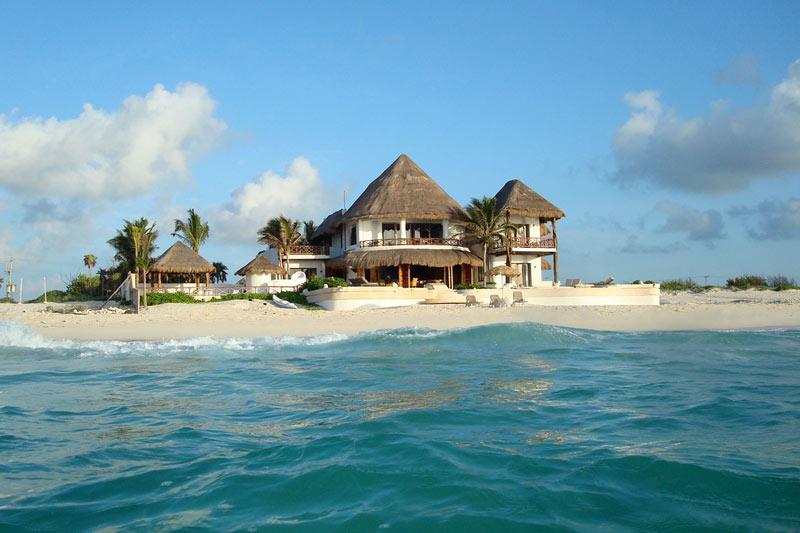
Playa Real
The Expat Advantage – Owning Property in Paradise
Aside from the opportunities to live abroad, immerse yourself in a new culture, live healthier, and rediscover yourself, there are real economic advantages to buying property in Latin America. Here are a just of few of those benefits:
Real Estate Is Both Real and Finite
There is an old saying that the reason property is so valuable is that they’re not making any more of it. As a result, land ownership carries a permanent value. Since it is a real, tangible asset, investing in it can be a real hedge against the growing debt crisis. Also, real estate has an intrinsic value; it exists, and it can be your paradise and security. Those are measures of wealth that far surpass anything on a balance sheet.
Central America Welcomes Expat Investment
Central American countries have actively created environments that promote expat investment. The rights of foreign property owners are, in many cases, identical to those held by a country’s own citizens. Favorable residency laws, discounts, and lower tax rates also make buying and living here a desirable alternative to staying in the U.S. or Europe.
There Are Bargains and Opportunities to Be Had
As the trend towards development sweeps through Central America, the affordability of property (especially parcels that are undeveloped or underdeveloped) is still quite good. For investors, this is an ideal situation where a lower initial outlay of funds can be expected to result in a good return on investment. Importantly, buying real estate in these tropical destinations carries much less risk than other options, such as stocks and bonds.

Best Jaco
Taking the First Step
Like any investment, buying and owning property in one of these tropical destinations does have challenges and some risks. Being an expat is not necessarily for everyone. Daring to reinvent oneself and rediscover the joys of learning a new culture and lifestyle may seem overwhelming.
How to discover if becoming a property owner in one of these tropical locations is right for you? Check out the kinds of residences, lots, and properties that are on the market. Above all, do some research and, if a country interests you, go there and visit – maybe more than once. You may discover that you don’t have to find paradise – paradise may find you.
With all the attention being focused on this area being a prime location for retirees and expats, many people are asking: Where is Panama? Discovering the special qualities of this country and learning about the potential there is a great way to decide if Panama is a place you should consider for your tropical escape.
Long overshadowed by its neighbors, Panama is coming into its own as a great place to invest, retire, or simply visit. With a streamlined residency program, easily obtained work permits, and use of the U.S. dollar as currency, Panama has become a prime location for investment, retirement, or reinventing oneself.

ThinkPanama
Answering the Geographic Question: Where Is Panama?
Panama is located at the end of Central America between Costa Rica and Colombia. The country is small – approximately 772 miles in length and only 37 miles wide at the most narrow part; this is roughly the size of the state of South Carolina.
This isthmus is the connecting link between North and South America and, of course home to the Panama Canal which connects the Atlantic and Pacific Oceans. Being so narrow, it is possible to visit both Atlantic and Pacific coasts in a single day.
When you visit Panama’s highest point, Volcán Baru, you are actually able to see both oceans at the same time. This is only one of three places on the planet that this is possible.

Mónica Mora
What About Getting There?
Panama is probably the most “connected” country in the region. In addition to the main international airport, Tocumen International Airport in Panama City, there are over thirty smaller regional airports throughout the country that handle domestic travel as well as charter flights. There are also three heliports in the country and plans to build an international airport on the Pacific Coast are under discussion.
Most major cities throughout Latin America and the Caribbean have regularly scheduled flights into Panama. Combined with flights from the United States, Europe, and South America, getting to Panama is easier than you might have thought.

Phossil .
Time and Distance
Looking at Panama’s location in relationship to other countries and cities is a great way to answer the question: Where is Panama? Below are some major cities, listed by continent, showing the distance from Panama and the time to fly to this tropical destination.
North America
| City or Town | Distance | Flight Time |
| New York City | 2220.69 miles | 5.5 hours |
| Miami | 1161.42 miles | 3 hours |
| Houston | 1765.98 miles | 4 hours |
| Los Angeles | 3006.67 miles | 7 hours |
| Chicago | 2328.52 miles | 5 hours |
| Atlanta | 1,727.29 miles | 4 hours |
| Mexico City | 1498.63 miles | 3.1 hours |
| Washington DC | 2075.57 miles | 5 hours |
| Toronto, Canada | 2395.88 miles | 5 hours |
South America
| City or Town | Distance | Flight Time |
| Rio de Janeiro | 3304.46 miles | 6.75 hours |
| Quito | 637.98 miles | 1.5 hours |
| Buenos Aires | 3317.48 miles | 6.75 hours |
| Caracas | 875.10 miles | 2 hours |
| Bogota | 462.2 miles | 1.1 hours |
| Lima | 1437.8 miles | 3 hours |
Central American and the Caribbean
| City or Town | Distance | Flight Time |
| Managua | 526.1 miles | 1.25 hours |
| Guatemala City | 841 miles | 2 hours |
| San Juan | 1112.6 miles | 2.5 hours |
| Havana | 1021.1 miles | 2.25 hours |
| San Jose | 318.85 miles | 1.1 hours |
Europe and Asia
| City or Town | Distance | Flight Time |
| London | 5292 miles | 11 hours |
| Paris | 5386.38 miles | 11.25 hours |
| Amsterdam | 5489.6 miles | 11.5 hours |
| Madrid | 5093.1 miles | 10.5 hours |
| Tokyo | 8418 miles | 17.5 hours |
| Rome | 5912.2 miles | 12.25hours |
| Sydney | 8806.58 miles | 22.5 hours |
And for Those Truly Wondering Where Panama Is in Relation to Important Global Points
| City or Town | Distance | Flight Time |
| The North Pole | 5603 miles | 12 hours if there were flights |
| Antarctica | 6564.22 miles | 13 hours if there were flights |
Where Is Panama in Terms of Your Future?
Knowing how far Panama is from major worldwide hubs, and how long it would take to fly there from those distant locations, is only one part of answering the question: Where is Panama? Begin by doing some research about this special country and decide where Panama is in terms of your ideas for retirement or investment.
Even better, plan a trip to Panama and see for yourself exactly where it may be located in your plans for investment, finding a place to retire, or becoming a favorite vacation spot. Panama is so much more than just a spot on the map; it may well be the dream location that you have been scouring the map to discover.
Expats and retirees have been retiring in Costa Rica for many years. The obvious benefits – great weather, beautiful beaches, and growing expat communities are well known. But some of the best things about relocating to this Central American paradise are those you might have never considered.
Finding information about Costa Rica and what it offers is easier than ever before. Discovering the potential that it holds is a journey that varies from person to person.

Oha
Hidden Gems in a Costa Rica Retirement
Some of the best aspects of retiring in Costa Rica are intangible in nature. Along with those features, Costa Rica does have many opportunities to reinvent yourself or invest in the future; truly a number of ways to make those “golden years” even more golden. Below are some of those things you might not have thought of when considering a Costa Rica retirement.
The Rhythm of Life
There is something that happens to people when they move to Costa Rica. Time takes on a different perspective and you find yourself feeling less urgency about getting things done.
This, in turn, reduces stress and allows the body and the mind to truly relax. Modern medical science has shown that lower stress has a variety of health benefits. In a real sense, the Costa Rican lifestyle can add years to your life and provide a better understanding of what truly is important and what is just “small stuff.”
Fewer Processed Foods Means Healthier Eating
Unlike the U.S., Canada, and Europe, there are far fewer processed foods to be had in Costa Rica. With the absence of golden arches on every corner (metaphorically speaking), food choices tend to be healthier with local fruits and vegetables taking the place of the products of large commercial farms.
Almost by default, you will find yourself eating less and eating healthier than you might back in the States. If you’re worried about dieting, retiring in Costa Rica can be one of the easiest ways to shed those pounds and those bodily toxins.
Paradise Is Easier to Reach Than Ever Before
One concern many expat retirees have is being able to visit their families back in the States or having family members visit them in their tropical escape. Costa Rica may just be the most accessible Central American country in terms of flights to and from the U.S., Canada, and Europe.
With two modern international airports, one in San Jose, the other in Liberia, finding affordable flights to and from most major cities is as simple as the proverbial click of a mouse. Importantly, as Costa Rica’s popularity continues to grow, more carriers are scheduling flights or expanding existing operations, which makes staying connected easier than you might think.
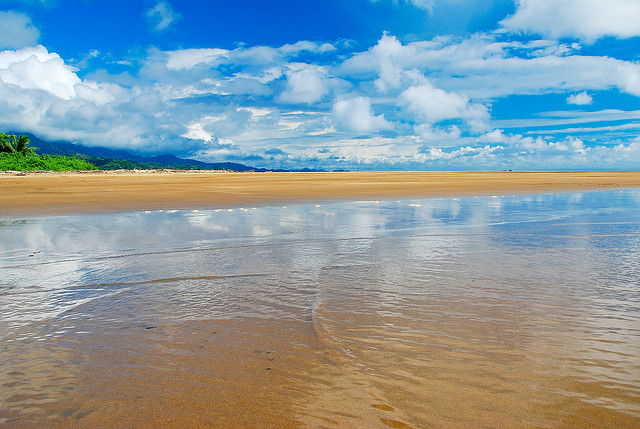
Didier Baertschiger
And, Speaking of Staying Connected…
Costa Rica continues to expand and improve its cable, cellular, and internet services. High speed internet access is readily available throughout much of the country – something that is unique among its Latin American neighbors.
Cable and satellite services carry many U.S. channels and shows and offer packages similar to those found in the States. There are also choices in cellular phone services that cover most of the country. Being able to stay connected to those back home, while enjoying the pleasures of a tropical retirement, is truly the best of both worlds.
Be One With Nature
Finding a retirement destination that is clean, eco-friendly, and dedicated to preserving all of the beauty of the natural world is a dream many expats have. Costa Rica has consistently been ranked as one of the cleanest and “greenest” countries in the world. Being one with the environment is an aesthetic benefit that can and does enrich the concept of what retirement is all about.
Costa Rica has been mentioned as one of the Blue Zones (those places where the lifestyle and environment are conducive to longer lives). When you choose a Costa Rica retirement, you may also discover that there are more years (and adventures) that await you than you could have dreamed of.
Beach, Rustic, Mountain, Cosmopolitan? So Many Lifestyle Choices
Costa Rica is definitely not a “one size fits all” destination for your retirement. Containing pristine beaches, small rustic “tico” villages, stunning mountain vistas, secluded tropical rainforests, and modern, cosmopolitan cities, you can truly customize the kind of retirement lifestyle that you are seeking.
Whether you are looking for established expat communities, like those in Escazu; the quiet mountain villages of the Central Valley; the beach lifestyle of Tamarindo, Jaco, or Playa Flamingo; or the laid-back Bohemian vibe found in places like Nosara, your retirement choices are more diverse than in other tropical locations. The choice, truly, is yours.
Potential for a Good Return on Retirement Investment
Although Costa Rica has been on the radar of expats and retirees for over a decade, there are still plenty of investment opportunities that exist. There are both residential and commercial properties throughout the country that could provide the opportunity to grow your investment/retirement dollars.
The improvements in infrastructure, such as the new (2010) highway along the Pacific coast, have opened up new areas for development. Uvita, Dominical, and other locations in the southern Pacific zone have become destinations for those looking to build their own tropical retreat and/or investment projects.
Stable Government Means No Expat Surprises
Costa Rica is in the enviable position of having one of the most stable governments throughout Latin America. For retirees, this stability translates into a security that there won’t be any surprises in terms of changing policies that have created uncertainty for many expats in other countries.
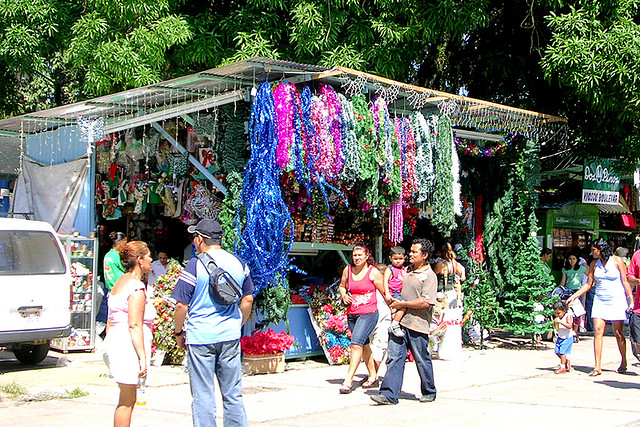
Roger
It’s About the Benjamins…
The U.S. dollar is accepted throughout much of the country, making shopping and other transactions easy. There are any number of ATMs throughout the country that you can access both colones (the Costa Rica currency) or U.S. dollars.
The knowledge that you can get to your funds easily and conveniently adds a layer of security for retirees who may be concerned about the ability to replenish their cash from time to time. Also, most major credit cards, such as Mastercard and Visa are also accepted at stores and restaurants as readily as they would be back home.
The People
Last, but by no means least, are the people of Costa Rica – the ticos and ticas. Friendly and welcoming, Costa Ricans can make your transition to a retirement life in paradise easier than you could imagine.
It is often said that Costa Rica is one of the happiest places on earth. The people who live in this Latin American gem certainly are proof of that.
Discover These Treasures for Yourself
It is a testament to all that Costa Rica offers that it remains as one of the most desirable places to retire on Earth. Take the time to visit this unique Central American destination, research the possibilities, and see for yourself what a “pura vida” retirement could be like.
Mexico: A State of Mind.
How’s your state of mind? Feeling confident and resilient? Flexible and fluid? Are you poised for adventure south of the border?
Freedom and opportunity reign in Mexico. And that’s why expats love it!

Chris Martino
Living in Mexico: What’s Not to Love?
The vibrant culture, beaches, deserts, mountains, and oceans. World-class surfing and snorkeling. Fresh seafood, Mexican and international cuisine.
Mexico offers outstanding opportunities to start a business, purchase real estate, and invest. Its low home prices and low cost of living afford you a superior quality of life.
You get superb health care facilities and state-of-the-art health care. Mexico’s modern infrastructure is solid. And high-speed communication makes your work and personal life easy.
Mexico has a number of International Airports that service flights from around the world. And good roads that make it easy to traverse the country for both business and pleasure.
Okay, I get it. Why not move your life to Mexico?
But, if you want to love living in Mexico, there are a few facts you need to know before you go.

Christopher William Adach
Living in Mexico: Your 5-Item Checklist (Before You Go)
1. Learn What It’s Like to Live in Mexico: Read Books, Blogs, and Forums.
Explore the realities of daily life through stories of ordinary expats. Read books like San Miguel de Allende: A Place In The Heart. This is a collection of stories about true expats.
Novels about Mexico can also provide unique insights about Mexico. You may know John Scherber’s popular Murder in Mexico mystery series. The Girl From Veracruz is his latest release.
The good news is, you can find these books (and pretty much everything else you need to know) on the MexConnect blog-style magazine site.
The website covers everything from articles about living in Mexico, to travel and food. Culture and arts, history, and business. And the best part is, you can join one of Mexconnect’s many forums.
Tune in for timely advice and share with other forum members. You’ll absorb copious amounts of information from experienced expats living in Mexico.
2. Learn Spanish: It’s Your Key to Thriving in Mexico.
Don’t just speak Spanish. Live and celebrate life in Spanish. There is nothing more influential in the outcome of your expat transition to Mexico.
There are many language learning options. Choose from a number of reputable self-paced programs. Rosetta Stone, Pimsleur, and Duolingo are all popular. You can also download apps for your mobile devices.
However, if you’re a procrastinator, a self-paced approach may not work. You may be better served by registering for Spanish classes at a local venue.
Your absolute best option is to enroll in Spanish Immersion in Mexico. This style of learning ensures you will fully engage in Mexico’s language and culture.
The Spanish Institute of Puebla and Instituto Cultural Oaxaca are two highly regarded Spanish language and culture schools in Mexico.
3. Understand Mexico’s Immigration Policies: Which Visa Is Right for You?
There are many kinds of Mexico Visas. Like many expats, you may not think twice about operating long-term on your Mexico Tourist Visa. But you may be missing out on real benefits with a Residency Visa.
Do you plan to live in Mexico six months a year (or more?) If so, you should consider the benefits of holding a temporary Visa versus a permanent Visa.
There are different ways to go about obtaining a Visa. So you may want to consider hiring an immigration lawyer who knows the immigration system well. It could save you money and hassle in the long run.
Make sure you understand the apostille process. You’re required to have a certified or notarized document (apostille) for any legal action (Visas included). This process alone is arduous. You will need birth certificates, marriage certificates, death certificates, and divorce decrees.
And there may be more. An immigration attorney or an experienced apostille service can ensure you have the correct documents. And that you navigate the process as quickly (and as stress-free) as possible.
4. Understand Mexico’s Banking System
Mexico’s banking system has a volatile history. But it survived the global financial crisis and recent financial reform. The banking system emerged more stable and profitable.
Opening the market to foreign banks with new customer service technologies, employee training, and management programs positively influenced Mexico’s banking system.
But you still need to be on your toes when banking in Mexico. Watch for high multi-layered charges and commissions. Expect high borrowing rates and low deposit rates. And not-so-good customer service.
You’re still likely to experience long lines at the counter, so you may want to do most of your banking online.
5. Learn How to Shop Smart and Save Money.
Markets and trade are deeply rooted in Mexico culture. Smart shopping is buying local. Scope out local food markets and stores where locals shop. You’ll definitely pay less than if you buy name brands.
Stay away from supermarkets and imported items whenever possible. You’ll find your best deals on staples like breads, meats, veggies, and fruits at local family markets and mobile street vendors. Get to know the local butcher. Think “fresh.” And avoid mass-produced pre-packaged foods.
Avoid shopping malls, department stores and mega stores. Shop for clothing and shoes with local shop owners and market traders. They’re usually open to negotiation. They may be inclined to make a special price just for you.
Shop local crafters for home furnishings as well. Local artisans’ handmade furnishings are crafted from local woods, recycled, and other local materials. If they’re not obvious, use your best Spanish to ask locals where you can find a local furniture maker.

Christopher William Adach
Living in Mexico: What to Research Next
This checklist gets you off to a good start. And learning is simply a part of the journey. Here are four more items you may want to research next.
- Long-term living costs in Mexico
- How to prepare your budget
- How are Mexico properties valued?
- Mexico’s tax structure
Be patient and flexible. Be adventurous. And make the most of living in Mexico.
As more and more baby boomers reach retirement age, the interest in finding places to retire in Latin America is also increasing. The choices for an expat retirement have never been larger; beaches, islands, mountain areas, even larger cities all offer the promise of enjoying the pleasures and natural beauty of a tropical paradise.
2015 promises to be an exciting year for retirees as there are so many locations to choose from. Learning about these unique and special spots and what they offer is as easy a clicking a mouse.
The Best of the Best – Top Places to Retire in Latin America
With so many possible destinations for retirees in Central and South America, compiling a list of the best places is not easy. Yet there are some locations that, literally, stand head and shoulders above the others. Here, then, is our list of the top eight places to retire in the coming year:

Lucy Nieeto
8. Mérida, Mexico
This growing city in the northern part of the Yucatan Peninsula has become a magnet for those expats who want to experience the cultural and historical vibe of colonial Mexico combined with a contemporary setting.
With increased media attention given to this cultural and financial center of the Yucatan, it is little wonder that Mérida has garnered the interest of Americans seeking to rebuild and restore the historical center and become immersed in the daily life of this special place. Constant improvements in infrastructure also make living here a desirable choice.

Perry McKenna
7. Roatán, Honduras
Located off the coast of Honduras, Roatán has long been a destination for cruise ships, scuba divers, and a myriad of other tourists. In recent years, however, expat retirees have also begun to settle here, recognizing the potential to own island property near the Mesoamerican Reef System (second largest in the world).
With regular international flights by U.S. carriers, such as American, Delta, and United, improved access to Roatán has also added to the influx of new expats. The expansion and improvements of the public works systems in both West End Village and Coxen Hole have increased the number of those seeking an island refuge.
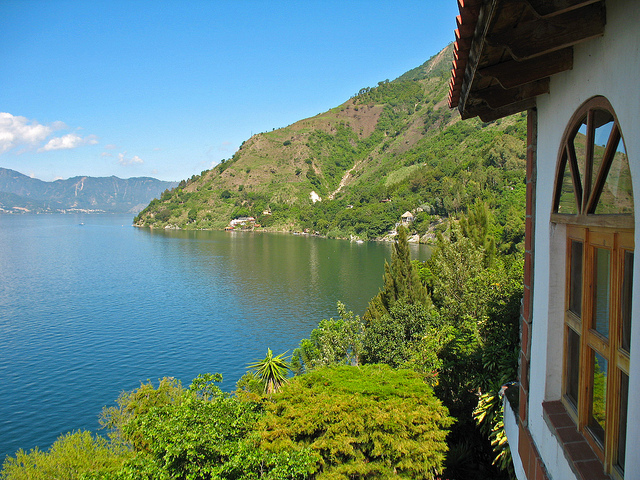
El Capitan
6. Lake Atitlán, Guatemala
If the idea of living in a serene lakeside village in the Guatemalan Highlands is your idea of a retirement paradise, the region around Lake Atitlán is the place for you. The fifteen small communities that surround Central America’s deepest lake are well off the beaten path and have long been places where meditation and Mayan culture have blended in harmony.
One of the best kept Latin American secrets, Lake Atitlán is gaining a larger audience among expats who are looking for a more simplistic, ecologically-connected lifestyle “somewhere else.”

Meredith Cook
5. Canoa Beach, Ecuador
With 17 kilometers of pristine sand, Canoa is the longest beach in Ecuador and is part of what promises to become Ecuador’s “Gold Coast.” Though primarily known for adventure sports like hang gliding, paragliding, and kitesurfing, the area has also become a prime expat destination.
This laid-back fishing village captures the rustic charm of Ecuadorian culture with a beach-party vibe; certainly the best of two worlds. Prices are still low and the potential for a high return on your investment continues to grow.

David Ellis
4. Quito, Ecuador: Our Top City Location
Quito has gotten a lot of exposure recently as being one of the most desirable expat locations in the world. At 9,350 feet, Quito is the highest capital city in the world and is also a UNESCO World Heritage location. With a modern infrastructure, tax breaks for seniors on property taxes, and use of the U.S. dollar as official currency, Quito promises to be a prime retirement destination for years to come.
When you factor in the new Mariscal Sucre International Airport, the moderate climate, and a rich cultural heritage, it is no wonder that Quito would be our choice for the top city location to retire in Latin America.

Parisa
3. Boquete, Panama: Our Top Mountain Location
Known as the “Napa Valley of Coffee,” Boquete came into focus as an expat destination after AARP named it as one of the best places to retire. Located on the Caldera River in Panama’s mountain highlands, this community has become known as much for its music and arts scene as its stunning views and caffeinated product-judged by many to be among the finest in the world.
A large expat community, the many discounts available to seniors, and favorable property prices have all contributed to Boquete’s popularity among foreign retirees and made it an obvious choice for the top mountain retirement location in Latin America.

Viva Tropical
2. Boca Chica, Panama: Our Top Island Location
Located in the Chiriqui National Marine Park, Boca Chica may just be one of the best kept secrets for a retirement mecca in Central or South America. While Chiriqui has long been known as a mountain destination, Boca Chica and the islands around it have come into their own as a great place to retire and invest.
The actual island of Boca Chica is six miles from the town of the same name and is unique in that it is covered in primary rainforest. Offering world-class sport fishing, snorkeling, and diving, the area’s growing real estate development offers the promise of an island paradise that is readily accessible to the U.S. from the nearby Enrique Malek International Airport in David.
All this tropical potential makes Boca Chica a clear choice for our top island location for retirees, investors, and expats.

Dakine Kane
1. And Our Top Beach Location and Number 1 on the Top Places to Retire is….?
Here are some clues to help you guess:
- This location has both a Blue Zone and a Blue Flag.
- There are yoga centers, bohemian/hippy hangouts, and artist collectives happily existing side by side.
- Four beach locations offer an eco-friendly family experience.
- Real estate prices are still affordable.
To see if you guessed correctly, and to learn more about our top eight retirement destinations (as well as other locations in Latin America), download our free e-book and begin your research on the best places to live and thrive in Latin America.
Expats choosing to retire to Ecuador are taking the “road less traveled’ and enjoying it. Though not as well-known as other popular Latin America destinations, Ecuador has an untapped potential that could make it the most popular retirement destination in the region.
There are more options for retirees in Ecuador today than ever before. Improvements in the country’s infrastructure have opened more areas for expats looking for a less cluttered existence.

Johnny Gustavo
Retire to Ecuador, Save Money, Live the Life You Want
Ecuador’s cost of living is certainly one of the most affordable in Latin America. It is important to remember, however, that some online claims about living there for practically nothing are overblown. Like anyplace else, how much you spend will depend on the choices you make concerning location, amenities, and luxuries.
The fact that the U.S. dollar is the currency of Ecuador is an important plus. Knowing the cost of things and not having to deal with currency exchange rates certainly makes budgeting for your retirement much easier – especially for those on fixed incomes.
Being able to buy or rent your retirement retreat at reasonable prices is one of the biggest draws of Ecuador. Even in the larger cities like Quito or Guayaquil, a spacious three-bedroom apartment can rent for under $1,500 per month. Rental and sale prices in smaller towns make finding a home much less stressful.
The lower health care costs that are offered in Ecuador certainly make living a healthy lifestyle much easier. Modern state-of-the art facilities provide high quality care at a fraction of the expense for the same procedures in the U.S. Dental care and dental tourism is another area where retiree dollars can go farther and enhance the quality of living for years to come.
An important and intangible benefit to retiring in Ecuador is the more relaxed pace of daily living. Being able to appreciate the natural beauty of the country, without the hectic approach to living found in the U.S., can make those retirement years truly “golden.”

Crucita MLS
Investment Potential Continues to Grow
A decision to retire to Ecuador may also provide the potential for a strong return on investments. There are a number of areas that are primed for new projects as expats continue to arrive seeking new housing and commercial options. In addition to already built properties, there is a growing number of undeveloped lots that are available in a variety of locations; both urban and rural.
The beach towns of Canoa and Ancon have a great deal of undeveloped and underdeveloped property that can be purchased quite reasonably. Crucita has become a world-class destination for paragliders and hang gliders. This increase in the tourist trade makes investing in rental properties a viable and potentially profitable action to consider. Along with San Clemente, this area is well on the way to becoming the next Pacific “Gold Coast.”
The beach is not the only part of Ecuador that is an attractive investment option. Cuenca, a World Heritage city in the foothills of the Andes and the Yunguilla Valley are becoming increasingly popular as expat destinations and potential retirement meccas that combine a moderate climate, rich cultural history, and affordable prices.

International Realestate
The Beauty of Ecuador – So Many Diverse Locations
One of the most unique features of Ecuador is the wide diversity of regions that can be your retirement destination.
For those whose idea of a tropical paradise is a cosmopolitan city with attractions and entertainments, Quito and Guayaquil are both modern and filled with the kind of amenities one might find in any major city in the U.S. These cities also are the locations of the two international airports in Ecuador; Mariscal Antonio José de Sucre in Quito and Simon Bolivar in Guayaquil.
Cuenca captures the flavor of the Andean Highlands and retains the essence of its rich colonial heritage. The coastal villages of Canoa, Ancon, San Clemente are rustic, laid-back beach communities just perfect for those looking for a more authentic Ecuadorian experience.
For those truly seeking to ‘”get away from it all,” Ecuador also has a number of island communities that could be your retirement paradise. Santa Cruz, Isla Isabella, Pena and San Cristobal are just some of the places expats are beginning to pay attention to.
The continued growth in the number of expats and retirees coming to Ecuador will increase the options available. Some of the small jungle towns, such as Banos, are in the earliest stages of moving from tourist attraction to a destination for expat arrivals to settle and develop.
Even beyond the possibilities of places to live, there are stunning natural wonders suddenly much closer if you are living in Ecuador. The Galapagos Archipelago, the Andes, and the Amazon Basin become more accessible and easier to explore; adding another dimension to the desirability of this Latin American gem.

Lobitadelsur
So Many Positives to Choose Ecuador and Things to Consider
For retirees, expats looking for a tropical escape, and investors exploring new options, Ecuador has many features to commend it. Constantly improving infrastructure, growing communities of North Americans and Europeans, and affordable properties are all important reasons to retire to Ecuador.
However, even in a tropical paradise, there are a number of factors that you should examine as part of your decision-making process. First and foremost is that English, while growing in usage, is not the dominant day-to-day language – particularly in the smaller rural villages and towns. An honest appraisal of your comfort level of living someplace where communications may be challenging at times is truly an important step to a happy relocation.
A second consideration is the fact that the more rustic communities also have fewer of the modern amenities of major cities such as Quito, Guayaquil, and Cuenca. If having ready access to high speed internet, cable television, etc. is a necessity, this could limit the potential Ecuadorian locations that might be right for you.
Patience is an important facet of expat life throughout Latin America and Ecuador is no exception. Travel, particularly where the only option is driving, can take significantly longer; repairs and improvements to infrastructure items such as roads, electricity, and even water, may involve much more time than one might find in the U.S. or Europe.
In the end, the best way to truly know if Ecuador is right for you (and if you are a good fit for Ecuador) is to talk to others who have made the decision. Do your research and, most importantly, visit this unique land of potential and promise and see if it resonates within you and makes you want to retire to Ecuador.
For many new or potential expats, one of the biggest perceived barriers to moving to the Latin tropics is the issue of learning the language. Since most of the countries in the Latin tropics speak Spanish as their official language, this is just another hurdle that many foreigners face, especially those who’ve never really been exposed to the language.
Then again, as more and more North Americans are discovering the region and moving by the thousands each year to the Latin tropics, is learning Spanish even necessary?

Daniel Lobo
Do Expats to Latin America Really Have to Learn Spanish?
The truth is…it depends. Mostly on you and the lifestyle you plan to live. If you plan to move to a heavily touristed area or exploding expat destination, live in a gated community of other people like you, eat in the same chain restaurants you find in North America, buy expensive imported products in the big box stores, and never immerse yourself in the local culture…then no. You don’t ultimately have to learn Spanish to do any of that.
There is enough of a long-standing expat presence in much of Latin America and enough English-speaking locals (in most of the mid- to larger-size cities) that you could easily get by only speaking English. You could find businesses that cater to expats, professionals who speak excellent English, and even translators for those really important legal transactions.
However, if you’ve made the decision to leave your home environment in search of a new adventure in the Latin tropics, then I doubt any of that sounds very appealing to you.
You Do if You Want to Maximize Your Expat Experience
What generally does appeal to most expats is the idea of meeting new people (who aren’t exactly like them), embarking on new adventures, trying new things, and becoming a more engaged and well-rounded version of themselves. If you’re going to achieve that, Debes aprender a hablar español.
Not only will learning how to interact with the locals enhance your experience as an expat. It also helps build mutual respect from their point of view as well. Locals in the Latin tropics are generally friendly and welcoming to most foreigners, especially those who’ve decided to call the region home. However, it speaks volumes to them to see newcomers going the extra mile to embrace their language and culture.
They understand that you’ll stumble in the beginning. And they won’t laugh at you…much. In fact, most will slow down and help you with your pronunciation if you get it wrong. (Hint: It’s arroz con “PO-yoh”, not “POL-lo” as it’s spelled.) The main thing that makes an impact with them is that you’re trying.

Anina Imhof
You Don’t Have to Be Fluent Before You Even Hit the Ground
What’s important to remember as you prepare for your transition as an expat is that it’s not necessary that you become fluent in Spanish before you ever set foot in your new country. In fact, it’s okay if you know little to nothing of the language when you arrive. There’s a hefty learning curve involved and plenty of resources to help you along the way.
Here are a few tips that helped each of us in the beginning and that we now offer as advice to new expats we meet:
- Use Google Translate or a similar app to help you in the beginning. Yeah, you’re gonna look like a tourist, but using apps that can translate from Spanish to English in real time can be a lifesaver when you’re first learning the ropes. The new Word Lens feature translates printed text using your smartphone camera, even when you don’t have an internet connection.
- Don’t frequent only English speaking businesses and establishments. The temptation will be there to only interact with people who speak your language, but don’t give in to it. You’ve got to stretch yourself if you’re ever going to feel comfortable in conversation with locals.
- Use every opportunity to practice. Try to make conversation with your cab driver, your waitress, and the guy that does your yardwork. Conversing with a variety of people will help you learn all the idioms and phrases that are specific to your part of the Latin tropics.
- Enroll in a class at a Spanish language school. This is one of the best ways to learn to Speak the language, and there are many reputable ones throughout Latin America. You can also hire a tutor to come to your home and give your family private lessons.
- Hire trustworthy English-speaking professionals to help you with legal matters. If you’re buying a house, navigating the immigration process, investing in a business, or doing anything else with important ramifications, it is absolutely essential that you find a reputable professional to help you. Get recommendations from other expats.

Geir Halvorsen
Don’t Let the Language Barrier Stand in Your Way
While learning the language is a necessary part of an expat’s transition, it should be the least of your worries. Rather than being a barrier that prevents you from blending in with the culture, you should see it as one of the most fun parts of your expat experience.
Learning a new language has been proven to sharpen the mind, even helping to stave off diseases like dementia and Alzheimer’s. For younger expats, it provides a fun challenge for the entire family, although the kids will likely pick it up the fastest. And the benefits for bilingual expat children will be realized as they apply for jobs and build their career.
Whatever your stage of life, learning a new language is always a great idea. What are you waiting for? Que lo pruebes!
Many baby boomers are wondering when might be the best time to explore the possibilities of expat life in the land of Pura Vida. The time has never been better: Move to Costa Rica now.
This Central American location has long been a favorite for people looking for their tropical escape. There are many reasons to take that big step and relocate to Costa Rica. Here is a list of the reasons to move to Costa Rica.

10211031
1. Connectivity
One of the principal concerns that confront many potential expats is the distance from family and friends in the U.S. Costa Rica is a short distance from the States and the two international airports, Daniel Oduber Quirós in Liberia and Juan Santamaria in San Jose, both have regularly scheduled flights from many U.S. cities.
Additionally, there are several shipping companies that operate between the U.S. and Costa Rica. For those individuals seeking to bring down larger items, such as furniture or vehicles, the close proximity to U.S. ports makes this both a viable and affordable option.

Akbuthod
2. Variety of Locations
Expats coming to Costa Rica have a choice of locations and lifestyles that they can choose from. The diversity of locations offered by Costa Rica is unique among many Latin American countries and provides a true range of residential and investment options.
For those who want the cosmopolitan feel of a modern city with a strong expat presence, the areas around San Jose, Escazu, and Alajuela are a great choice. If a more laid-back, Bohemian lifestyle is your idea of paradise, the southern Nicoya Peninsula has many locations and possibilities. Surfers seeking to find that “endless summer” can look to the area around Jaco and the smaller villages for their retreat to paradise.
Maybe higher-end resort living is something that ticks your boxes. Tamarindo, Playa Flamingo, and much of Costa Rica’s Gold Coast offers upscale lifestyle and properties with the kind of amenities one would expect from such locations. Los Suenos, in the Central Pacific Zone, is another quality resort and marina that is second to none in quality and style.
The call of the mountains can be a powerful draw for some. The area around Lake Arenal not only has stunning views but unique properties and a large expat presence. More secluded options can be found farther south in the region around Puriscal and the Diamante Valley.
With constantly improving and growing infrastructure, even areas that were largely undeveloped are experiencing a wave of growth. Few locations in Central or South America have as developed an infrastructure over so much of the country as Costa Rica.
Regardless whether the beach, the city, mountains, jungle, or a rural setting is your heart’s desire, it can be found in Costa Rica. Looking at the kind of properties available is a great way to narrow down your selections to help you make your move to Costa Rica now.

13523
3. Green Living
Costa Rica has long dedicated itself to maintaining and sustaining the environment. Establishing “green zones” and limiting development and deforestation are just some of eco-friendly measures that have been pursued in recent years.
Expats readily discover that living in Costa Rica is healthier. The less stressful lifestyle, abundance of locally grown fruits and vegetables, and reliable and clean water are all contributing factors.
The quality of medical care in Costa Rica is not only equal to that found in many larger countries, such as the U.S., the cost is much lower. With state-of-the-art facilities like CIMA and Hospital Clinica Biblica, even complex medical procedures can be performed by highly skilled and certified medical practitioners.
For those seeking to explore the benefits of alternative medicine, there are many yoga retreats and wellness centers offering different approaches to treating health concerns. With so many choices, maintaining good health is both convenient and comparatively low cost.

Amaynez
4. Abundant Investment Opportunities
Following the global financial meltdown of 2008, Costa Rica has begun to see resurgence in real estate investments. Not only have the construction and sale of individual residences increased dramatically, larger investors are looking to build developments and open new areas to the expat and tourist industry. Dominical, Uvita, and Golfito are some of the communities where investment dollars are being focused.
As property values continue to climb and demand continues to grow, the return on initial expenditures is also on the upswing. For established areas such as the Central Valley, there is a significant increase being seen as a new wave of expats arrives to settle there.
While this does mean that purchases prices are higher here than elsewhere in Latin America, the potential for an increase in value is also higher. For buyers wanting to maximize the return on their investment, Costa Rica is a great choice.

Dingatx
5. Choose Your Own Adventure
As with any life-changing action, you need to be certain that you are prepared for the adventure. Here are a couple of matters to consider:
First and most important is the question of how you plan to support yourself in Costa Rica? Are you going to use a fixed income, such as social security or a pension? Are you an investor looking to earn returns on your initial allocation? Are you planning on working or opening a business? Understanding the legal aspects of these options and being realistic about your budget before moving can reduce heartache and “expat regret” after the fact.
Secondly, are you thinking of becoming a resident or would you be a “permanent tourist” and leave the country every 90 days to renew your visa? Costa Rica is considering changes that could clamp down on expats who either don’t qualify or can’t qualify for residency. While these changes haven’t become widespread, it is important to consider your own long term plans as to whether you want to live full time or part time in the country.
It is important for you to do your research on these kinds of matters. Connect with other expats through social media, read online articles, and learn about the life in the country. Above all, never be afraid to ask questions; the only silly question is the one that is never asked.

Costa Rica Villas
6. There are Real Estate Bargins
So the question many potential expats ask is: Why should I move to Costa Rica now? A better question would be: Why should you wait?
The Costa Rica real estate market is on the upswing and, as more and more baby boomers get set to retire, the competition to find “the best bargains” is only going to get tighter. Waiting until another time may result in you missing out on your dream location.
With an affordable and healthier lifestyle, modern amenities, and some of the most beautiful and scenic locales on earth, walking away from the hectic and stressful life in the U.S. can provide a fresh perspective on just how good living can be.
Take a look for yourself. Visit Costa Rica, explore the cities, towns, and beaches and talk to those who have made the journey. Taking these first steps is the best way to find your home in paradise.
One of the many benefits that has made Mexico a long-time expat destination is the diversity of climates. Ranging from the tropical wetness found on both coasts to the arid desert of the interior, the seven variations of the climate in Mexico are a veritable bounty for expats to choose from.
Much like the various regions in Mexico, each micro-climate has distinct characteristics that can influence where you might want to retire or invest. The properties in Mexico also reflect these climatic differences and provide a wide range of prices and amenities for potential buyers to examine.

Veracruz – Lucy Nieto
Climates in Mexico – From Very Wet to Very Dry
Mexico is unique among Latin American countries in that it has seven distinct micro-climates within its borders. These micro-climates can be grouped into three categories: tropical, dry, and temperate.
- Southern Veracruz, Gulf Coast Plain, Tabasco, Oaxaca, and Chiapas highlands are tropical and wet with average temperatures over 64° F and at least 2.4 inches of rain every month.
- The Pacific Coastline as well as central and northern Veracruz are tropical wet and dry, with less than one inch of rain during the dry season; usually from November to May. This pronounced “dry season” is one reason why the Yucatan Peninsula is popular with expats.
- Baja California (which is actually in Mexico) and Western Sonara have a dry, desert climate similar to the Sahara Desert with less than 10 inches of rain a year. The Sierra Mountain Range, in the center of this Mexican state, is the heart of Mexico’s wine producing region. Temperatures are still moderate with highs in the high 70s and nighttime in the low 50s.
- Central Plateau, northern Yucatan Peninsula and the western Sierra Madre have slightly more rain (10-30 inches per year). The southern part of this region also has higher temperatures than the northern area.
- Tijuana’s climate actually resembles the Mediterranean coast with dry summers and rain only during the winter months.
- Guadalajara is the quintessential example of a temperate climate with the best combination of mild temperatures, low humidity, dry winters, and low summer rainfall. It is little wonder that this former pueblo town is one of the fastest growing metropolitan areas in Mexico and a prime investment option.
- Eastern Sierra Madre is considered a temperate climate, although the humid, subtropical weather here is closer to the tropical zones with higher humidity and rain throughout the year.

Merida – UBELONG Volunteer Abroad
With So Many Choices, Which Climate in Mexico Is Right for Me?
Deciding which climate in Mexico fits your lifestyle, health, and long-term vision for retirement and/or investment opportunities involves some soul-searching. What is your definition of a Latin American paradise? Rural or cosmopolitan, beach or jungle, multi-unit or standalone? Applying that first “filter” can help you narrow your focus on the location that best suits you. Here are some areas expats have been focusing on in recent years.
Puerto Vallarta and Guadalajara
Puerto Vallarta is one of the most established expat communities, not only in Mexico, but throughout Latin America. Nestled along the Pacific Coast, its tropical vibe, a comfortable dry season, and modern infrastructure all contribute to its continued status as a prime retirement location.
Guadalajara, with its moderate temperatures, lower humidity, and less rain, is rapidly gaining ground as a place to retire or invest. The growth of the city itself has also led to improvements in infrastructure and more residential options being available.
Merida and Cancun/Riviera Maya
For those whose love of the beach is irresistible, the area around Cancun and Riviera Maya has long been a drawing card for investors and expats alike. The warm, tropical temperatures of the Gulf of Mexico, a dry season that matches perfectly with winter in the U.S., and a large expat presence, make this the prime area for anyone wanting to live by the sea.
An up and coming location, also in the Yucatan Peninsula, is the town of Merida. Lying along the trade wind belt close to the Tropic of Cancer, it has a similar tropical wet and dry climate, although its average daily temperature – around 91°F – is warmer than the coastal areas.
Acapulco
In the southern Mexican state of Guerrero, lies one of Mexico’s oldest tourist destinations, Acapulco. Long favored by Hollywood royalty, such as Elizabeth Taylor and Frank Sinatra, this city is seeing revitalization after the difficulties of the early part of the 21st century. Although technically having a tropical wet and dry climate, Acapulco’s temperatures are more moderate than the resort areas in the Yucatan with the average daily temperatures running in the low to mid 80s.
The Tropic of Cancer
Mexico also has the distinction of having the Tropic of Cancer run right through the heart of the country. This is the northernmost latitude when the sun can appear directly overhead on the Summer Solstice. It is no surprise, then, that sun lovers have been choosing Mexico as the best place to retire and prosper.

Acapulco – Martin Garcia
Starting the Journey
If you’ve never been to Mexico, now is the best time to go. Visit the country, immerse yourself in Mexican culture, and learn where you seem to fit in best. Keep in mind that the seasons in Mexico are likely to be far different than those where you live.
Talking to people who have relocated there, whether permanently or as “snow birds,” is another good way of discovering where the best places to relocate might be. Don’t be afraid to ask questions; the answers you receive can be invaluable.
Lastly, keep in mind that the “climate” in Mexico is also a state of mind as well as meteorology. Knowing what you want, and where to find it, is the key to opening the door of your Mexican destination.














